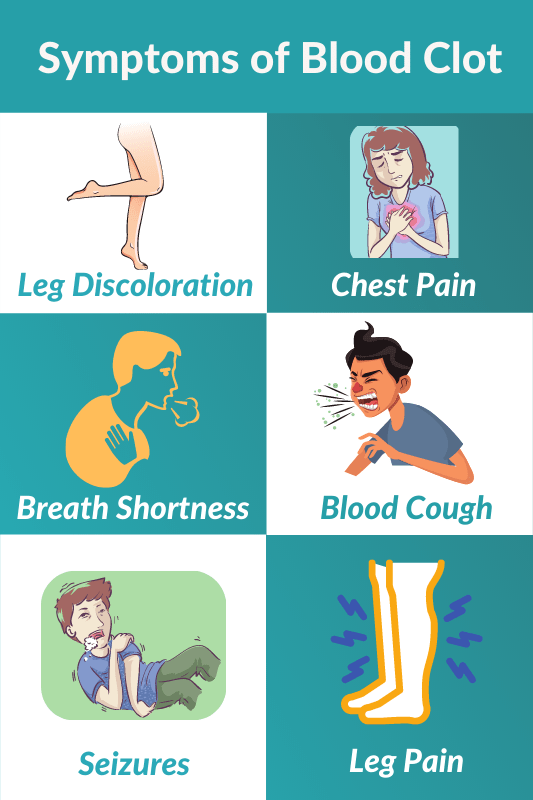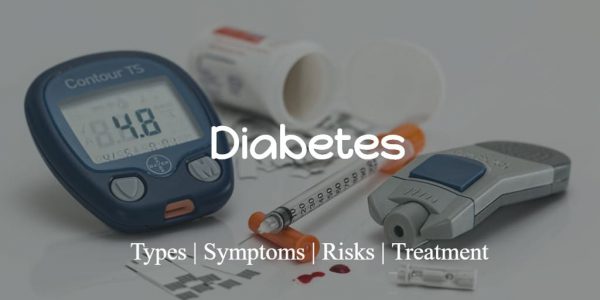
D-dimer test is used to detect any abnormal blood clotting inside the blood vessels of our body. It is generally prescribed to diagnose blood clot diseases such as Thrombosis, Stroke, Disseminated Intravascular Coagulation (DIC) and, other forms of blood clot disorders.
The article below covers all the significant and relevant topics of D-dimer test like D-dimer test cost, why is the test done, how to get tested, test procedure, treatment, normal range of d-dimer levels, and complications of elevated D-dimer levels.
- D-dimer test cost
- What is a D dimer test?
- Why is a D dimer test done?
- Who is recommended for a D dimer test?
- What is the D dimer test procedure?
- Is there any preparation required before the test?
- Are there any risks involved in the test?
- What do the D-dimer test results mean?
- What are the normal level and elevated D-dimer levels?
- Provider Locations
For our readers who are very much interested in knowing the D-dimer test cost beforehand, we begin with that section.
How Much Does a D-Dimer Test Cost?
D-dimer test costs $303 in the U.S. No prior appointment is required. Compare the price, order your test online and visit the nearest lab during lab business hours. Complete the procedure and get the results in your email in 2 to 3 business days. Doctor consultation is also available for further treatment or any kind of medical advice.
The following table shows the D-dimer test cost at one of our partner laboratories (CLIA – Certified) network located across the U.S.
Name of our Partner Labs | Book Online |
Personal Testing Lab
| Offer Price$303 |
D-dimer test cost with insurance
Most of the insurance companies in the U.S. cover the cost of the D-dimer test. However, the coverage offered by private health insurance companies and national health insurance programs like Medicare and Medicaid varies widely. So we recommend you check the coverage of your health insurance plan before getting tested.
Our above-mentioned D-dimer testing providers do not accept any health insurance policy but, on request, they can provide the itemized receipt containing all the details like the name and code of the test, and CPT code which is necessary for insurance reimbursement purposes.
What is a D-dimer test?
A D-dimer test is a simple blood test done to detect the presence of a blood clot.
A blood clot naturally forms to prevent the leakage of blood from a damaged blood vessel. However, when a blood clot forms it is essential that its size is limited to prevent it from completely blocking the blood vessel it’s trying to repair.
D-dimer is one of the protein leftover substances floating around the blood when a blood clot dissolves in the body. Generally, it cannot be found or is found at a very low level. But, the levels of D-dimer rise if you have a major blood clot.
Why is a D dimer test done?
The D-dimer test is done to evaluate the amount of a protein called “fibrin D-dimer” in the blood. Fibrin is the main component of a blood clot which helps to reduce and plug the blood leak. Our body produces Fibrin D-dimer whenever there is blood leakage that is being actively degraded somewhere within the vascular system.
The D-dimer test helps determine the level of a blood clot in case of deep vein thrombosis (DVT) or pulmonary embolus and stroke. It is also useful in evaluating a variety of medical conditions.
According to the Centres for Disease Control and Prevention (CDC), nearly 900,000 people in the US are diagnosed each year in the US and 60,000 – 100,000 Americans die of Deep Vein Thrombosis (DVT). Moreover, approximately 5 to 8% of the U.S. population has one of several genetic risk factors, also known as inherited thrombophilias.

Who is recommended for a D-dimer test?
Your physician will order a D-dimer test to rule out certain conditions that might cause blood clots such as deep vein thrombosis (DVT), pulmonary embolism (PE), disseminated intravascular coagulation (DIC), or a stroke, and when you experience the following symptoms of blood clots.
Symptoms
- Color change, pain, or swelling in the leg (usually in one leg)
- Sudden chest pain
- Rapid pulse
- Coughing with blood
- Shortness of breath
- Bleeding gums
- Nausea and vomiting
- Seizures
- Severe stomach and muscle pain
Sometimes, the D-dimer test is also ordered to check the effectiveness of ongoing treatment for DIC.

What is the D-dimer test procedure?
D-dimer test is a simple blood test. During this test, a lab technician or a phlebotomist will cleanse the area to be injected with an antiseptic and wrap an elastic band around the upper arm to make the vein visible and pool with blood. He/she then injects a needle to draw a sample of blood and collects the blood sample in a vial (a small glass container) or a test tube. After the blood is drawn, he/she covers the injected area with a band-aid or a cotton ball to stop bleeding. The collected specimen is then sent to the lab for further analysis.
It takes less than 5 to 10 minutes to perform this test.
Is there any preparation required before the test?
There is no special preparation required for the D-dimer blood test. You can have your regular diet and carry on with your regular activities.
Are there any risks involved in the test?
There is no possible risk of taking a D-dimer test. You might have a slight pain in the area where the needle was put in. But this pain will go away quickly.
What do the D dimer test results mean?
If your D-dimer blood test results are “normal” (i.e. less than 0.50 or below 500 nanograms/milliliter), it indicates that you are not affected by any blood clots.
If your results are “abnormal” or at an elevated D-dimer level (i.e. above 0.50 or above 500 nanograms/milliliter), it indicates that you are infected with some form of an active blood clot.
However, the results of the D-dimer test itself cannot accurately determine the normal or abnormal levels because many of us have a few amounts of D-dimer circulating in our blood at any given time due to daily activity reasons, therefore your doctor or physician would require you to take an additional test or image screening to interpret the exact blood clotting issue.
What is the normal range of the D-dimer level?
The normal range of the D-dimer level
The D-dimer level is said to be normal when the result is less than 0.50 or <500 ng/mL – below 500 nanograms per milliliter.
Elevated D-dimer level
The D-dimer level is at an elevated level or “abnormal” when the result is above 0.50 or >500 ng/mL – which is elevated above 500 nanograms per milliliter.

What causes an elevated D-dimer level?
The D-dimer level is said to be elevated due to deep vein thrombosis (DVT), pulmonary embolism (PE), disseminated intravascular coagulation (DIC), or a stroke. Apart from these, the following grounds are also some of the reasons to have a high D-dimer level
- Pregnancy
- Bring over 60 years of age
- Recent Surgery
- Trauma
- Sickle cell disease
- Consumption of tobacco
- Liver disease
Providers Locations
D-dimer test can be done in any of the following locations by visiting the lab near you. To know the D-dimer test cost, refer to the first section of the article.
- Alabama
- Alaska
- Arizona
- Arkansas
- California
- Colorado
- Connecticut
- Delaware
- Florida
- Hawaii
- Georgia
- Idaho
- Illinois
- Indiana
- Iowa
- Kansas
- Kentucky
- Louisiana
- Maine
- Michigan
- Minnesota
- Mississippi
- Missouri
- Montana
- Nebraska
- Nevada
- New Hampshire
- New Mexico
- North Carolina
- North Dakota
- Oklahoma
- Oregon
- Pennsylvania
- Puerto Rico
- South Carolina
- South Dakota
- Tennessee
- Texas
- Utah
- Vermont
- Virginia
- Washington
- West Virginia
- Wisconsin
- Wyoming
Frequently Asked Questions
Will insurance cover my testing cost?
No, insurance will not be covered in the billing. However, they will provide you a receipt for insurance reimbursement purposes.
How should I book my appointment?
You can choose the most suitable provider from above and make an appointment by following the instructions mentioned by them.
Can I cancel my lab test order?
Yes, you can cancel your lab test order anytime before your testing. A refund will be initiated after deducting the cancellation fee. However, cancellation is at the discretion of the provider.
Do the providers offer result interpretations?
Yes, a few providers may provide doctor consultation who will take you through the results and provide clarification if needed.
How do I receive my report?
To ensure your privacy, the test report will be mailed to you by the provider.
Other topics you may be interested in:-
- MCH Blood Test Cost in the U.S.
- Signs and Symptoms of Oral Syphilis
- Growth Hormone (GH) Test Cost in the U.S.
- Can I Get an STD from a toilet seat?
- Cost of HIV Test in the U.S.| Rapid Test
- Food Sensitivity Test Cost in the U.S.
- How much does the Hemoglobin A1c Test Cost in the U.S?
- How much does the LDH Test Cost in the US?
- Quantiferon Gold Test Cost in the U.S.
- Importance of Progesterone & Fertility Testing
- Liver Function Test Cost – Book online now
- C-Peptide Normal Levels, Test Results & Treatment
- How much does the Complete Blood Count (CBC) Test Cost in the U.S?
- Cost of Mononucleosis (mono) Test Cost in the U.S.
- Importance of Prolactin Hormone & Fertility
- What is creatinine in blood? Know more about the creatinine test cost near me
- What is the Clap STD? Where does the name come from?
- Oral STDs: Names, Symptoms, Treatment and Testing Cost
- HPV in Women: Symptoms, Genital Warts, Treatment and More
- Causes of Penile Rashes and Other STD Symptoms in Men






